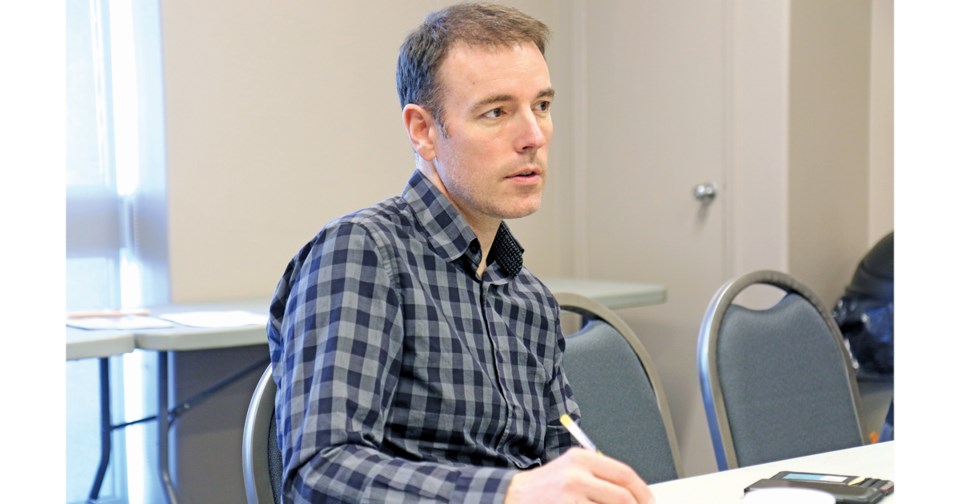WATROUS — At an agriculture roundtable hosted by the Saskatchewan New Democrats in Watrous, farmers expressed concern about the new seed royalty rules and foreign ownership.
Yens Pedersen, the NDP’s agriculture critic, said he’s touring the province to listen to the concerns of farmers and others in rural Saskatchewan, a place where the opposition party has no seats.
“We are very much interested in rural Saskatchewan and agriculture and wanting to make sure that people know that: a) we’re listening; and b) we care.”
When it comes to seed royalties, the federal government is examining two regimes that are designed to compensate seed companies when farmers decide to save seed from one crop and then plant it in future years. An end-point royalty would be charged on a per-ton basis upon delivery of a crop, with the funds generated returned to the breeding program that created the variety, while trailing contracts would require farmers to pay royalties to the breeder if they use the seed in future years.
The seed industry says it wants to see royalties reformed to help it pay for the cost of developing new varieties.
“We think the provincial government should be opposing these changes,” Pedersen said.
“It would be like you buy a truck, every time you want to drive it, you’d have to pay Ford another royalty for driving your truck. You’d buy a bull and every time you want to use the bull for breeding, you got to pay the guy you bought it from an another fee to keep using the bull that you bought and paid for.”
The Regina Northeast MLA said the producers he’s been talking to are quite upset about the proposals.
As for foreign ownership, Saskatchewan law requires that owners of more than 10 acres of farmland are Canadian citizens or an entity that’s controlled 100 per cent by Canadian citizens. Non-citizens can apply for the government for an exemption.
“We’re definitely hearing a lot of concerns from people that there’s suspicion that some people are skirting or breaking the rules somehow,” Pedersen said. “It’s a concern now that I’ve heard on several occasions. I’m looking into it.”
The MLA said the major concern about foreign ownership he’s heard from producers is it would increase prices to already expensive farmland, locking out young and new farmers from starting their own farms.
Pedersen, who also serves as the NDP’s environment critic, also brought up the federally imposed carbon tax that’s set to come into effect in April.
“The NDP has been saying that the federal carbon tax is a problem for Saskatchewan and we’ve been saying it’s a problem for agricultural producers and farmers,” he said. “We think the provincial government should have actually done more to protect farmers from the impact of the federal carbon tax.”
The New Democrats’ position on a carbon tax has been that if it’s something the federal government will enforce, then the province of Saskatchewan should design one that protects Saskatchewan industries instead of having a tax imposed that’s designed in Ottawa.
Pedersen said the Saskatchewan Party government has created its own regulations in its Prairie Resilience climate change plan that protects big emitters like potash mines, pulp mills, steel mills, and oil and gas.
“The provincial government did bring in legislation to protect those industries, but one big industry that they left that’s very exposed to carbon taxes is farmers and the provincial government didn’t do anything when they did that legislation,” he said. “They didn’t do anything to protect farmers and we think that was a big miss.”



